Starrcade was a production of Jim Crockett Promotions (JCP), at that time the largest and most dominant "territory" in the NWA. It would be a Thanksgiving Day tradition until 1987, when the WWF, led by Vince McMahon, scheduled a pay-per-view event of their own, Survivor Series, on Thanksgiving night. McMahon, coming off the major success of Wrestlemania and his national expansion, demanded exclusivity from the cable providers on carrying his event.
The TV networks complied with McMahon's request, and as a result, the 1987 Starrcade was considered a financial failure. In 1988, JCP was sold to Ted Turner's Turner Broadcasting and became what would eventually become WCW. In order to prevent further financial losses, Starrcade was moved to December the following year and eventually held closer to Christmas.
But for me, Starrcade will always be a Thanksgiving event. With that in mind, let's take a road trip down memory lane to 30 years ago when the NWA/WCW brought you Starrcade 1989!
 |
| The Starrcade 1989 VHS cover |
The 7th annual Starrcade was produced under the National Wrestling Alliance banner even though the company had recently changed names to WCW. Airing December 13,1989 from The Omni in Atlanta, Georgia, the show was heavily focused on the Iron Man Match and Iron Team tournaments. Unlike most Starrcade events that focused on major feuds and storylines, this particular Starrcade showcased only a small amount of wrestlers, focused entirely on the two Iron Man tournaments, and featured no title defenses.
The Iron Man and Iron Team Tournaments were round-robin tournaments that used a convoluted point system. A pinfall or submission win earned 20 points, a count out earned 15, a disqualification earned 10, a draw 5, and a loss was 0.
The 1989 Starrcade is mostly memorable for igniting the feud between Sting and Ric Flair after a brief friendship that included Sting joining the Four Horseman. A few months prior in July at The Great American Bash, Sting came to the aid of Ric Flair when Flair was attacked by Terry Funk and The Great Muta. Sting and Flair would team together in a series of matches against Funk and Muta, culminating in the infamous "Thunderdome Match" at the 1989 Halloween Havoc. Following the results of this show, Ric would slowly begin to turn his back on Sting.
Let's get to the show!
Legendary announcer Jim Ross opens the show after a snazzy opening graphic sequence that was probably very high-tech for its time. Jim Cornette explains the weird point system.
The opening match featured two of my all-time favorite tag teams: Doom (Ron Simmons and Butch Reed) against the Steiner Brothers (Rick and Scott Steiner.) This was a good back-and-forth match that featured involvement from Doom's managers, Woman and Nitron. Nitron pulled Rick Steiner out of the ring and both teams began brawling on the floor. Rick rolled into the ring just in time for Ron Simmons to be counted out, and the Steiners won the first match of the Iron Team Tournament.
Up next, Sting and Lex Luger, my two childhood favorite wrestlers, faced off against one another in an Iron Man Tournament matchup. A pretty good match for Luger, who is not otherwise known as an in-ring specialist. Luger won by cheating when he pinned Sting using the ring ropes for leverage.
Doom was back in the ring next to take on The Road Warriors (Animal and Hawk.) These 4 giants put on a decent match that went back and forth. Doom took the early advantage, and The Road Warriors were forced to come back late in the match. As Butch Reed was set to hit his signature piledriver on Animal, Hawk performed a flying clothesline that knocked him down, and Animal landed on top for the pin and victory.
Out fourth were legendary wrestlers The Great Muta and Ric Flair. Muta was advertised as unpinned up to this point in his WCW career, which any fan of pro wrestling knows can only foreshadow a loss. I was right, Ric pinned Muta with an inside cradle to win the bout. Before the pin, though, Buzz Sawyer and The Dragonmaster came to Muta's aid when Flair's buddies Ole and Arn Anderson interfered in the match.
The next match featured the Steiner Brothers and the Road Warriors. The Road Warriors took advantage over Scott Steiner for several minutes and Rick and Scott had several failed comebacks. Animal and Hawk attempted a combo belly to back suplex and clothesline on Scott but the suplex resulted in Animal's shoulders being on the mat and the Steiner Brothers won by pinfall.
The show definitely started to feel repetitive at this point, and we still had 7 matches to go.
The Iron Man and Iron Team Tournaments were round-robin tournaments that used a convoluted point system. A pinfall or submission win earned 20 points, a count out earned 15, a disqualification earned 10, a draw 5, and a loss was 0.
The 1989 Starrcade is mostly memorable for igniting the feud between Sting and Ric Flair after a brief friendship that included Sting joining the Four Horseman. A few months prior in July at The Great American Bash, Sting came to the aid of Ric Flair when Flair was attacked by Terry Funk and The Great Muta. Sting and Flair would team together in a series of matches against Funk and Muta, culminating in the infamous "Thunderdome Match" at the 1989 Halloween Havoc. Following the results of this show, Ric would slowly begin to turn his back on Sting.
Let's get to the show!
Legendary announcer Jim Ross opens the show after a snazzy opening graphic sequence that was probably very high-tech for its time. Jim Cornette explains the weird point system.
The opening match featured two of my all-time favorite tag teams: Doom (Ron Simmons and Butch Reed) against the Steiner Brothers (Rick and Scott Steiner.) This was a good back-and-forth match that featured involvement from Doom's managers, Woman and Nitron. Nitron pulled Rick Steiner out of the ring and both teams began brawling on the floor. Rick rolled into the ring just in time for Ron Simmons to be counted out, and the Steiners won the first match of the Iron Team Tournament.
Up next, Sting and Lex Luger, my two childhood favorite wrestlers, faced off against one another in an Iron Man Tournament matchup. A pretty good match for Luger, who is not otherwise known as an in-ring specialist. Luger won by cheating when he pinned Sting using the ring ropes for leverage.
Doom was back in the ring next to take on The Road Warriors (Animal and Hawk.) These 4 giants put on a decent match that went back and forth. Doom took the early advantage, and The Road Warriors were forced to come back late in the match. As Butch Reed was set to hit his signature piledriver on Animal, Hawk performed a flying clothesline that knocked him down, and Animal landed on top for the pin and victory.
Out fourth were legendary wrestlers The Great Muta and Ric Flair. Muta was advertised as unpinned up to this point in his WCW career, which any fan of pro wrestling knows can only foreshadow a loss. I was right, Ric pinned Muta with an inside cradle to win the bout. Before the pin, though, Buzz Sawyer and The Dragonmaster came to Muta's aid when Flair's buddies Ole and Arn Anderson interfered in the match.
The next match featured the Steiner Brothers and the Road Warriors. The Road Warriors took advantage over Scott Steiner for several minutes and Rick and Scott had several failed comebacks. Animal and Hawk attempted a combo belly to back suplex and clothesline on Scott but the suplex resulted in Animal's shoulders being on the mat and the Steiner Brothers won by pinfall.
The show definitely started to feel repetitive at this point, and we still had 7 matches to go.
 |
| Sting vs. The Great Muta |
The 6th match was between Muta and Sting. Muta made several high-flying moves off the top, including a moonsault (which at that time was pretty groundbreaking.) When Muta climbed the turnbuckles to attempt another moonsault Sting quickly climbed up and performed a superplex into the pin for a victory. So much for Muta not being pinned in WCW; this was his second loss of the night.
 |
| Doom vs The New Wild Samoans |
Finally, some fresh faces came out for the next match as the "New Wild Samoans" (Samoan Savage and Fatu) took on Doom. If you don't recognize the name New Wild Samoans, it's because they were the former Samoan SWAT Team that suddenly switched names in homage to the original "Wild Samoans," Afa and Sika. The New Wild Samoans would go on to fame in the WWF as The Headshrinkers. Eventually, Samoan Savage would be known as The Tonga Kid, and Fatu would be best known as Attitude Era star Rikishi. Their manager for this match was billed "The Big Kahuna," but most people knew him as Oliver Humperdink.
As WWE Producer Bruce Prichard frequently says on his podcast, putting the name "NEW" on anything usually means it stinks. He's not wrong, folks.
The New Wild Samoans were a last-minute replacement for The SkyScrapers (Sid Vicious and Dan Spivey) when Vicious got injured. Doom kept most of the advantage throughout the match, but The Big Kahuna interfered, allowing Fatu to win. Doom is 0 for 3 tonight so far.
Up next, Lex Luger took on Ric Flair. This match ended in a draw after the time limit expired, just as Luger was going to tap out to Ric Flair's signature Figure Four Leglock. At the time, Luger was on a meteoric rise to popularity, and this was likely done to save face for Flair not losing to a "new" guy and also not taint Luger with a loss. The fact that the "rules" included points for a draw had to make you figure there would be a draw in here somewhere.
The New Wild Samoans were back out for a match against the Steiner Brothers. Scott Steiner sent Fatu over the top rope and was disqualified, costing the Steiner's the match. During this era, WCW enacted a ridiculous rule that throwing anyone over the top rope to the outside would cause a DQ, but that's a story for another time.
Next, The Great Muta took on Lex Luger in a pretty slow match. Muta targeted Lex's "injured leg" with several submission-style moves, such as the Boston Crab and Muta Lock. Luger fought back but couldn't lock in the Torture Rack. For the first time during the show, The Great Muta spit his iconic green mist into Luger's face, losing the match by disqualification in the process. Luger wins.
The eleventh match of the night once again featured the New Wild Samoans as they looked to defeat the Road Warriors. These guys are all clearly tired at this point and there were plenty of slow moving "rest holds." Chinlock after chinlock slowed the pace of the match down greatly. Eventually, the four would find themselves in the ring together and a wild brawl ensued. Hawk hit a flying clothesline to Samoan Savage and pinned him to not just win the match but the Iron Tag Team Tournament!
We finally have reached the Main Event of the evening: Ric Flair against Sting. Flair threw Sting out of the ring, and the two brawled around the ringside area for a while. Back into the ring, the two traded moves back and forth. Sting hit the Stinger Splash and finally got Ric locked into the Scorpion Deathlock but Flair managed to reach the ropes to break the hold. Ric then hooks in the Figure Four but Sting makes it to the ropes. Flair hits a few more moves to weaken Sting's legs an begins to lock in the Figure Four again but Sting counters with an inside cradle and pins Flair to win the match and the Iron Man Tournament!
As WWE Producer Bruce Prichard frequently says on his podcast, putting the name "NEW" on anything usually means it stinks. He's not wrong, folks.
The New Wild Samoans were a last-minute replacement for The SkyScrapers (Sid Vicious and Dan Spivey) when Vicious got injured. Doom kept most of the advantage throughout the match, but The Big Kahuna interfered, allowing Fatu to win. Doom is 0 for 3 tonight so far.
Up next, Lex Luger took on Ric Flair. This match ended in a draw after the time limit expired, just as Luger was going to tap out to Ric Flair's signature Figure Four Leglock. At the time, Luger was on a meteoric rise to popularity, and this was likely done to save face for Flair not losing to a "new" guy and also not taint Luger with a loss. The fact that the "rules" included points for a draw had to make you figure there would be a draw in here somewhere.
The New Wild Samoans were back out for a match against the Steiner Brothers. Scott Steiner sent Fatu over the top rope and was disqualified, costing the Steiner's the match. During this era, WCW enacted a ridiculous rule that throwing anyone over the top rope to the outside would cause a DQ, but that's a story for another time.
Next, The Great Muta took on Lex Luger in a pretty slow match. Muta targeted Lex's "injured leg" with several submission-style moves, such as the Boston Crab and Muta Lock. Luger fought back but couldn't lock in the Torture Rack. For the first time during the show, The Great Muta spit his iconic green mist into Luger's face, losing the match by disqualification in the process. Luger wins.
The eleventh match of the night once again featured the New Wild Samoans as they looked to defeat the Road Warriors. These guys are all clearly tired at this point and there were plenty of slow moving "rest holds." Chinlock after chinlock slowed the pace of the match down greatly. Eventually, the four would find themselves in the ring together and a wild brawl ensued. Hawk hit a flying clothesline to Samoan Savage and pinned him to not just win the match but the Iron Tag Team Tournament!
We finally have reached the Main Event of the evening: Ric Flair against Sting. Flair threw Sting out of the ring, and the two brawled around the ringside area for a while. Back into the ring, the two traded moves back and forth. Sting hit the Stinger Splash and finally got Ric locked into the Scorpion Deathlock but Flair managed to reach the ropes to break the hold. Ric then hooks in the Figure Four but Sting makes it to the ropes. Flair hits a few more moves to weaken Sting's legs an begins to lock in the Figure Four again but Sting counters with an inside cradle and pins Flair to win the match and the Iron Man Tournament!
 |
| Sting vs. Ric Flair |
In winning the Iron Man Tournament, Sting earned an opportunity to face Flair at WrestleWar for the NWA World Heavyweight Championship. The previous good friendship would begin to fade during the coming months and would result in a blow-up. On the February 6th Clash of the Champions, Sting announced he would accept the Title Match against Flair at WrestleWar against the warnings of The Horseman. Sting was kicked out of the group and attacked later in the show.
During the attack by the Horseman at the Clash of Champions, Sting tore his left patella tendon and remained out of action for months. Luger would go on to replace Sting at Wrestlewar, but this led to Sting returning to defeat Flair for the title famously at The Great American Bash.
All in all, this was a so-so event in Starrcade's history. The show seemed to drag a bit for me, seeing the same wrestlers over and over again without much storyline purpose. I also found it ironic that both tournaments featured the "Iron Man" moniker, but none of the matches were Iron Man matches.
I did, however, enjoy seeing my childhood favorites in their prime, but they were clearly exhausted by the end of the show. I also prefer a bracket-style tournament with clear-cut winner advancement over the hard-to-follow point systems, but this is what it is.
What I enjoyed most about reviewing Starrcade 89 was seeing Sting in his prime. Starrcade 89 launched Sting into superstardom, earning him the nickname "The Icon." Sting is still one of my favorite wrestlers, and his storyline with (and then against) the Four Horseman is one of my all-time favorite wrestling memories of yesteryear.
During the attack by the Horseman at the Clash of Champions, Sting tore his left patella tendon and remained out of action for months. Luger would go on to replace Sting at Wrestlewar, but this led to Sting returning to defeat Flair for the title famously at The Great American Bash.
All in all, this was a so-so event in Starrcade's history. The show seemed to drag a bit for me, seeing the same wrestlers over and over again without much storyline purpose. I also found it ironic that both tournaments featured the "Iron Man" moniker, but none of the matches were Iron Man matches.
I did, however, enjoy seeing my childhood favorites in their prime, but they were clearly exhausted by the end of the show. I also prefer a bracket-style tournament with clear-cut winner advancement over the hard-to-follow point systems, but this is what it is.
What I enjoyed most about reviewing Starrcade 89 was seeing Sting in his prime. Starrcade 89 launched Sting into superstardom, earning him the nickname "The Icon." Sting is still one of my favorite wrestlers, and his storyline with (and then against) the Four Horseman is one of my all-time favorite wrestling memories of yesteryear.
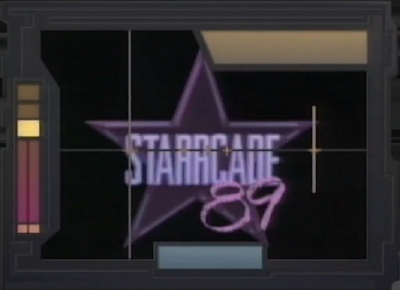






.png)
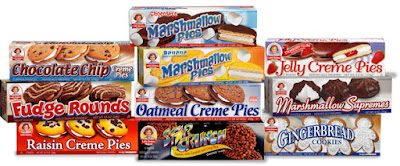
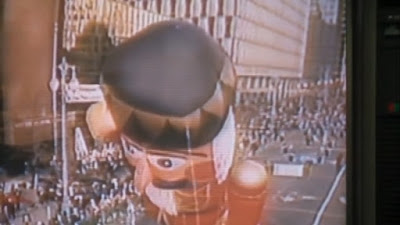

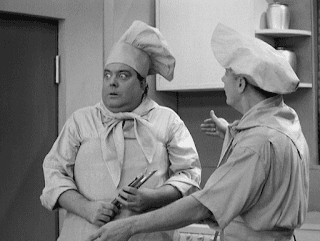
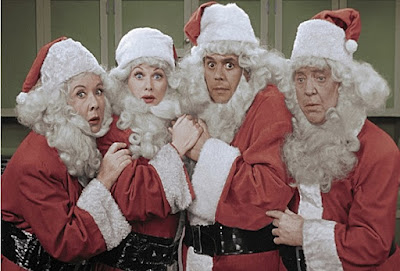
Comments